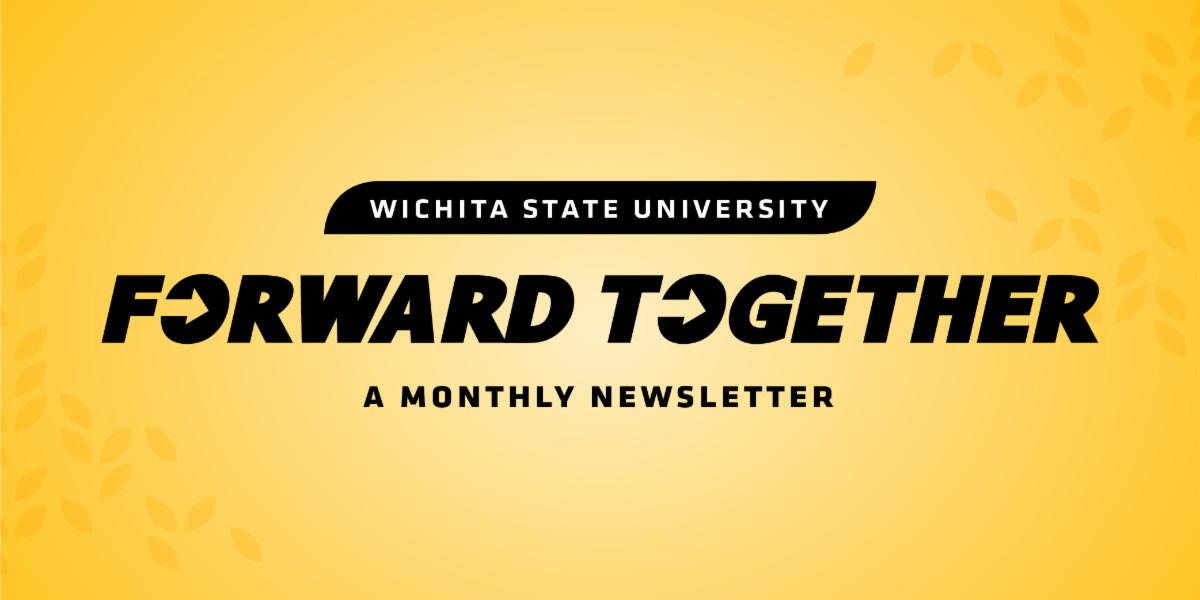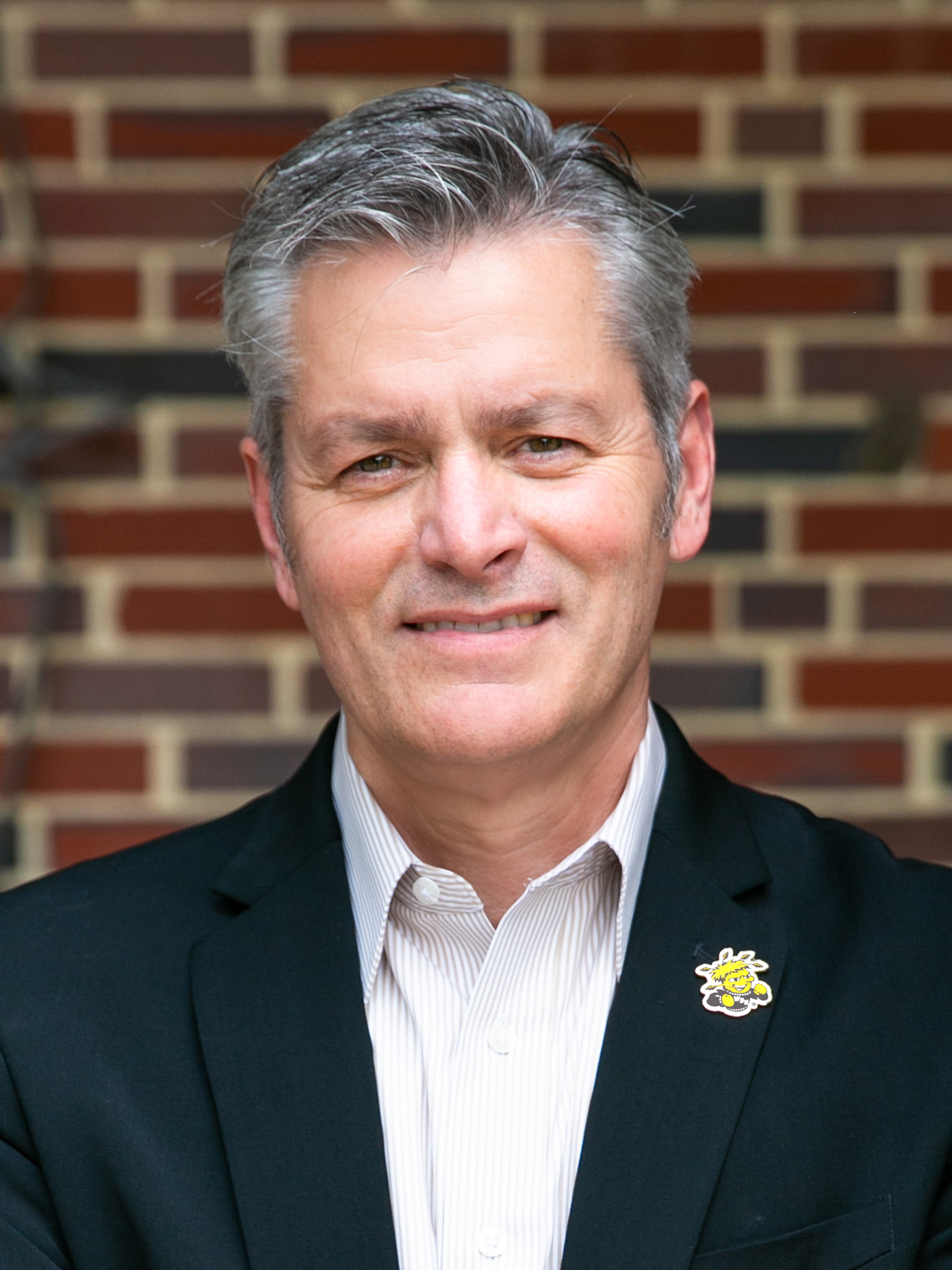
WSU's researchers contribute to an expansive and diverse portfolio of knowledge

Dr. Rick Muma, president
Wichita State is emerging as a regional and national leader in research, and the recent National Science Foundation Higher Education Research and Development Survey put us (among all U.S. universities) in the top three in aerospace engineering and the top 20 in engineering research and development expenditures overall. This is in large part due to our outstanding faculty, staff innovation partners, and the exceptional work being done at our National Institute for Aerospace Research (NIAR).
Research is a cornerstone of Wichita State, and we emphasize interdisciplinary research that works to fill the needs and solve the problems of our community and state.
Our dominance in the aerospace field sometimes overshadows some of the other truly groundbreaking research happening here, and I wanted to take a moment and highlight some of the non-aerospace research and innovations happening at Wichita State.
- Researchers from the fields of mechanical engineering and biology are working to revolutionize burn-wound care with a scaffolding system that prevents infection and promotes healing.
- The National Science Foundation Convergence Accelerator Track awarded a Wichita State-led team a $750,000 grant to create a wayfinding system to help people with disabilities navigate through buildings, helping them find elevators, emergency exits and accessible entrances.
- An interdisciplinary team of faculty and students from engineering and public affairs are working to mitigate the environmental impact of road salt by creating an eco-friendly deicing agent.
- The Center for Educational Technologies to Assist Refugee Learners (CETARL) is working on two initiatives: The first, Education for All, is to build a game-based learning platform to give millions of displaced refugee children access to age-appropriate lessons. Cybersecurity for All targets adult refugees, teaching them what red flags to watch for to avoid phishing and scams.
- Each year, the Center for Real Estate at Wichita State researches and releases a housing forecast of the current housing market conditions in the major markets across the state – including Kansas City, Lawrence, Manhattan, Topeka and Wichita – and forecasts housing market activity.
- Also on a yearly basis, the Center for Economic Development and Business Research releases an updated employment forecast for Wichita, Kansas City, Topeka and the state of Kansas.
- The Library of Congress American Folklife Center recently selected a Wichita State project focusing on the social, cultural and food-based LatinX celebrations in Dodge City, Liberal and Garden City, Kansas.
- A group of Wichita State student researchers recently traveled to Paris to present their work on a $2 million grant from NASA to study the sun’s neutrinos from low Earth orbit.
- A team led by researchers with Wichita State’s College of Engineering and Fairmount College of Liberal Arts and Science are working to expand the role of telehealth for cardiovascular care in older adults.
- The U.S. Department of Commerce’s Economic Development Administration awarded Wichita State $51.4 million to aid in the rapid development and adoption of emerging smart manufacturing technologies for South Kansas.
- Our archeology and anthropology students are engaged in work to unearth and preserve ancient culture and artifacts buried in the Etzanoa Archeological Field School, and our geology students have an opportunity to travel to Wyoming and Montana to study the geological structures of Bighorn Basin.
- In biology, Dr. Greg Houseman recently received $2 million to do a grazing intensity assessment for the U.S. Department of Agriculture.
- The WSU Environmental Finance Center has received several grants from the Environmental Protection Agency to build community capacity to address technical, financial, and environmental challenges including water infrastructure, watershed health, solid waste management, and more. Through these grants, the EFC provides technical assistance, tools and trainings to utilities and municipalities across the state, region, and country to help communities, especially small and underserved communities, reach their economic, environmental, and social goals.
- Mathew Muether received $275,000 from the Department of Energy to study neutrino interaction measurements using the NOvA and DUNE detector systems and their impact on neutrino oscillation measurements.
- A Wichita State University research team has received $432,565 from the National Institutes of Health for its proposal, “Examining the feasibility of a wearable device for fetal heart rate monitoring through interdisciplinary research.”
- From the College of Applied Studies, Drs. Angela Beeler, Heidi Cornell and Kourtney Kromminga received a $2.3 million grant from the Department of Education. The project, School Psychology Partnerships to Increase Rural School-Based Services, will provide compensation for 96 School Psychology Graduate students to complete their field experience in one of the three partnered districts. Additionally, the project will fund 45 GRA positions, up to 12 scholarships, and rural outreach to increase awareness of school based mental health fields.
This is just a handful of the engaging research that the students, faculty, staff and our partners do at Kansas’ only urban public research university every day in an effort to address and solve the issues of our community and our state.
Go Shockers!
Sincerely,
Dr. Rick Muma
President of Wichita State University

